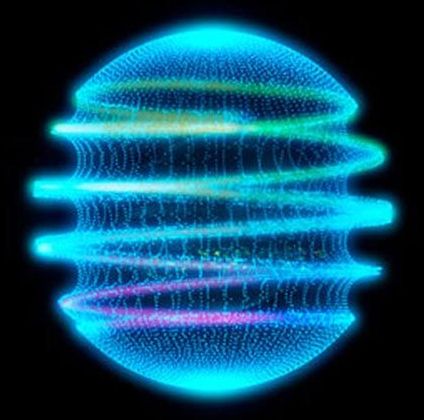Calculations show how theoretical ‘axionic strings’ could create odd behavior if produced in exotic materials in the lab.
A hypothetical particle that could solve one of the biggest puzzles in cosmology just got a little less mysterious. A RIKEN physicist and two colleagues have revealed the mathematical underpinnings that could explain how so-called axions might generate string-like entities that create a strange voltage in lab materials.
Axions were first proposed in the 1970s by physicists studying the theory of quantum chromodynamics, which describes how some elementary particles are held together within the atomic nucleus. The trouble was that this theory predicted some bizarre properties for known particles that are not observed. To fix this, physicists posited a new particle—later dubbed the axion, after a brand of laundry detergent, because it helped clean up a mess in the theory.
